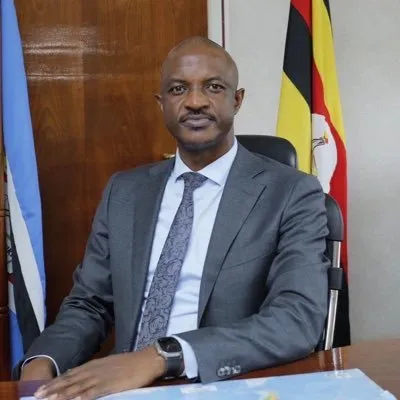Uganda’s finances may be singing in tune for now, but the melody won’t last without careful management. That’s the message from Ramathan Ggoobi, Uganda’s permanent secretary in the finance ministry, who assured the country that current and future debts are covered.
The national debt climbed to $23.7 billion by June 2023, a jump from $21 billion six months prior. But Ggoobi insists all’s well, claiming “debt sustainability” thanks to a growing economy and sound financial practices. The country’s GDP reached $185 trillion by June, boosted by a healthy 5.2% growth rate.
But Ggoobi doesn’t advocate complacency. He emphasized the government’s commitment to “fiscal consolidation,” which means collecting more taxes, spending wisely, and borrowing responsibly. He clarified that even “recurrent expenditure,” often seen as wasteful, includes essential expenses like salaries, pensions, and critical development works.
Looking ahead, Ggoobi hinted at promising talks with the World Bank for project funding, but stressed the need for inclusivity and non-discrimination in project selection. On the infrastructure front, he announced a $300 million boost from the African Development Bank for Kampala’s roads, with another $600 million on the way from the World Bank.
But concerns linger. Dr. Arthur Bainomugisha, from the Advocates Coalition for Development, warned about neglecting climate change adaptation, fearing farmers could lose their crops. Julius Mukunda, from the Civil Society Budget Advocacy Group, proposed a joint monitoring system with the Auditor General and public procurement authorities to ensure efficient service delivery.
The message is clear: Uganda’s financial health is stable, but continuous vigilance and responsible practices are crucial to keeping the debt song from turning into a dirge. Open communication, transparency in project selection, and proactive adaptation to challenges like climate change will be the instruments that ensure the melody of economic growth continues to play sweet music for all Ugandans.






